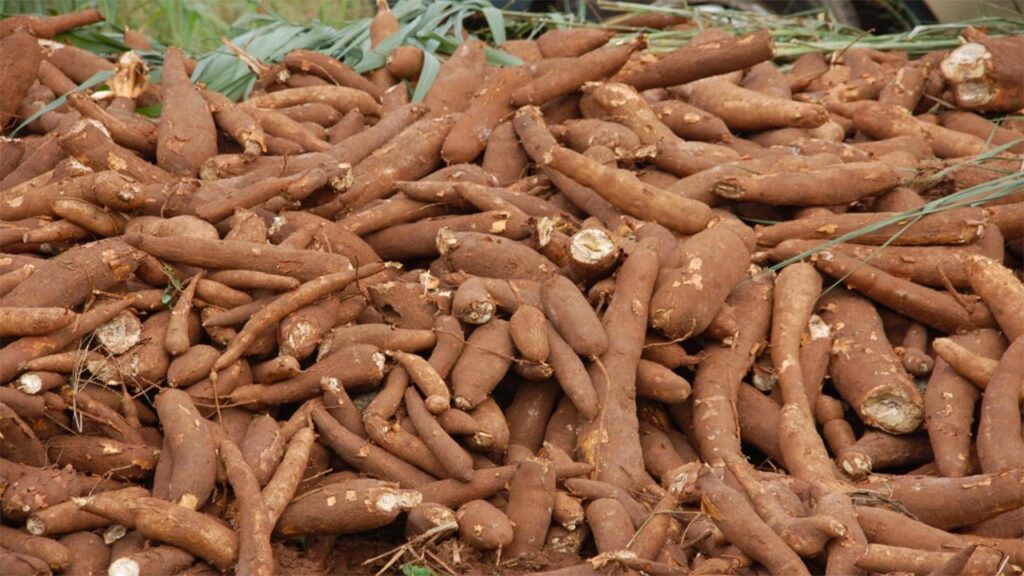The looming food crisis facing Akwa Ibom State is scary and worrisome given the seeming fact that there appears to be no end in sight in the nearest future.
It is a wake-up call by all – individuals and the state government- to match action with words to avert the impending doom. Unlike Coronavirus that struck unannounced, food crisis is staring at everyone and could gradually decimate a growing population.
On a yearly basis, the government makes huge budgetary allocations for food production. How much is released and how it is usually expended on the programme appears a tall order that defies all logics and common sense.
Without adequate and practical utilization of funds, the crisis remains like a stubborn diabetic ulcer that won’t easily heal. It continues to perpetrate havocs in the state and makes nonsense of government policies deliberately designed to tackle the crisis of poverty staring at more than 7.2 million people in the face.
We are aware of plans by the government to ensure food sufficiency in the state. The Commissioner for Agriculture, Dr. Glory Edet revealed in her interview that the governor had approved interest-free loans to cassava, maize and vegetable farmers.
In the area of training, Governor Udom Emmanuel Administration is said to have trained more than 300 youths on various agricultural enterprises, raised and distributed 500,000 improved cocoa seedlings to farmers, and made it compulsory for schools to own farms, among others.
Despite the efforts by the government to guarantee food sufficiency, we are afraid that the stark realities of food crisis occasioned by dearth of foodstuffs, and fruits culminating in hunger, lack and want still gnaw at the people especially the low income earners and the jobless.
In spite of the most-vaunted propaganda of government cultivating and owning cassava farms in the 31 local government areas of the state, planting of tonnes of tomato and ginger, the truth is that such effort boils down to subsistence measures as the outputs from such interventions could barely, and may not really, address the hydra-headed problem.
It is no longer news that traders buy and bring garri and yams eaten in the state from Benue, Anambra and Cross River States. Tomatoes, onions, and other agricultural products are shipped from the Northern parts of the country.
It was amusing for the state commissioner for Agriculture to have arranged and sold three cups of garri for N100 instead of one cup for N100 in the market to interested public servants at Idongesit Nkanga Secretariat, Uyo last month. That, at its best, is more a political jamboree than serious effort to alleviate poverty and hunger in the land.
For sustainable food sufficiency, the state government has to give interest-free loans, fertilizer, modern farming implements and seedlings to real farmers not ‘political’ or portmanteau-carrying farmers, who would collect the loans and plough into grandiose ventures.
Government has to pay counterpart funding to FADAMA to enable the body to grant more loan facilities to local farmers.
Again, government must stop the activities of dubious revenue collectors and some insensitive law enforcement agents who are in the habit of extorting money from the ‘suffering’ traders. More importantly, government has to curtail the voracious activities of middle men who are fond of jacking up prices to the detriment of the less privileged.
On the other hand, we want to call on the Akwa Ibom people to return to land by engaging in farming as business not as past-time to be able to feed many and sell some products to others. We should be less dependent on buying foodstuffs from outside the state to avoid sabotage and avert blockage in event of any crisis, just as we, down South, are currently experiencing with embargo on onions shipment from the North.
It is our hope that if these prescriptions are religiously followed, foods crises could be curbed and the state able to feed her citizenry and the surplus exported to other agriculturally disadvantaged states or climes. Eventually, we will be able to return the state to a sound pedestal in food sufficiency and make her the food basket of Nigeria.

